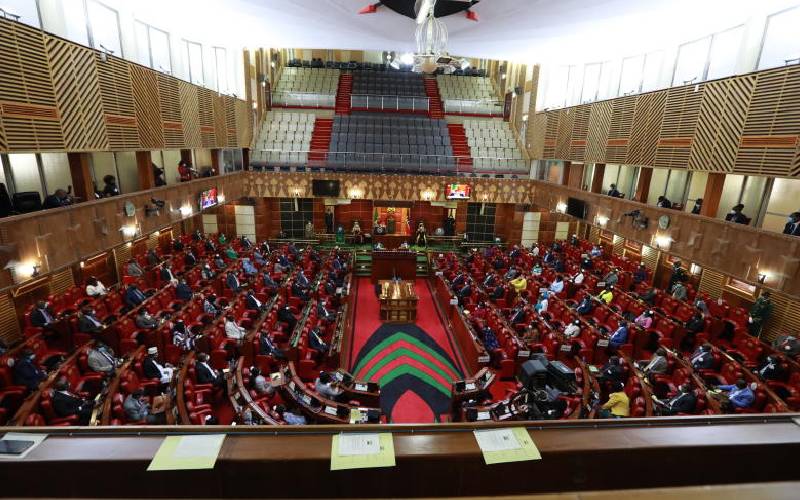×
The Standard e-Paper
Kenya’s Boldest Voice

A joint parliamentary session in Nairobi on May 5, 2021. [David Njaaga, Standard]
It is not unusual for the floor of the National Assembly to be turned into an arena where ‘dishonourable’ lawmakers trade insults and blows in a fanatic show of support for their political masters.